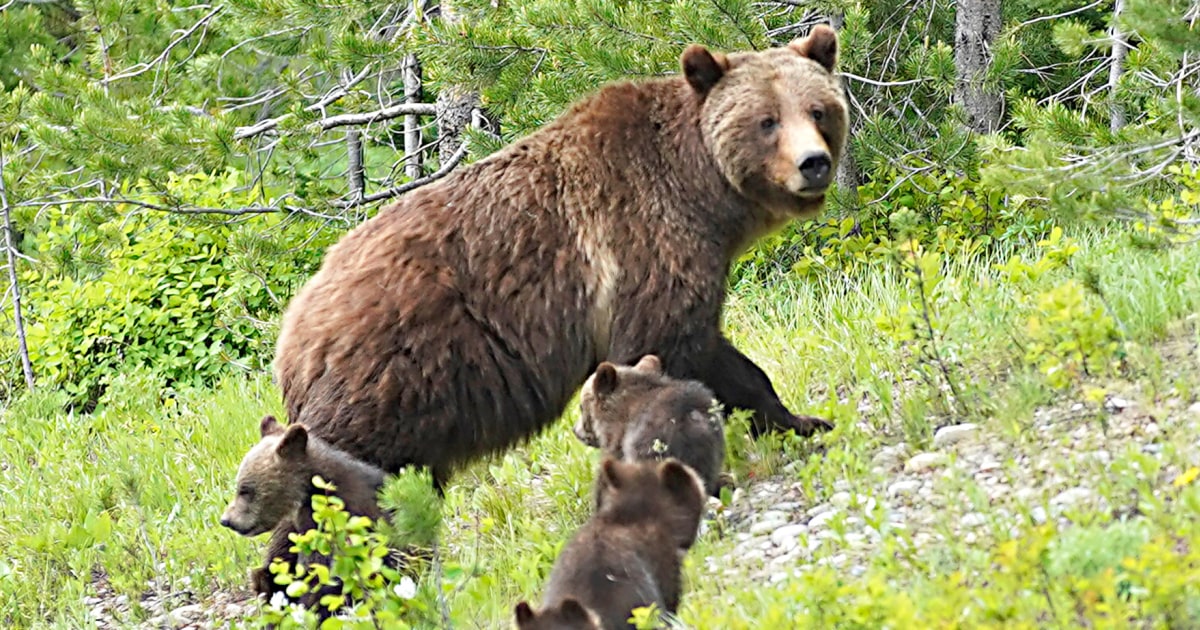The bear known as Grizzly 399, who PBS dubbed the “most famous grizzly in the world,” was killed Tuesday evening after being hit by a car in Wyoming, according to officials.
The U.S. Fish and Wildlife Service said the bear was identified through her microchip after being hit on a highway in Snake River Canyon near Jackson, Wyoming. A cub was with her at the time of the accident, but the service said there was no indication the cub was involved in the accident.
Grizzly 399 was an iconic resident of the Grand Teton National Park, located near Yellowstone National Park. Grand Teton National Park Superintendent Chip Jenkins described her as one of the animals that makes the area’s national park ecosystem “so extraordinary.”
“Grizzly bear 399 has been perhaps the most prominent ambassador for the species,” Jenkins said. “She has inspired countless visitors into conservation stewardship around the world and will be missed.”
The 28-year-old Grizzly was one of the most photographed bears at the park and is the oldest known reproducing female grizzly bear in the greater Yellowstone park system. She’s birthed a total of 18 cubs in her lifetime, though only eight have reached adulthood.
PBS dedicated an episode of its “Nature” series to Grizzly 399 in May, titling it “Grizzly 399: Queen of the Tetons.” Trevor Bloom, a wildlife biologist with the University of Washington, noted in the episode that she was seen raising four cubs which he noted was “rare” for bears.
“That’s like a human having quadruplets,” Bloom said.
American nature photographer Thomas D. Mangelsen first saw Grizzly 399 in May 2006, an exciting but fleeting moment for the photographer. He was among the first to photograph the bear and her cubs, which kickstarted years of documenting the grizzly through the lens.
He told Stanford University in 2021 that Grizzly 399 became the “poster child” of bear conservation. Grizzlies are a protected class as a threatened species, but not considered endangered.
Grizzlies are a subspecies of brown bears and once thrived in North America prior to the early 1800s, but their populations became threatened by European colonizers who believed them to be a danger. According to the U.S. Fish and Wildlife Service, the species were reduced to 2 percent of their population by the 1930s and by 1975 there were only upwards of 800 bears in the contiguous 48 states.
Protections have been put in place to help the bear population rise and now there’s an estimated 1,923 in the contiguous U.S., the service said.

